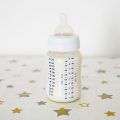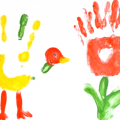 Diet when poisoning children should be gentle. Photo: Getty
Diet when poisoning children should be gentle. Photo: Getty
The basics of the diet after a child's poisoning
If a child is vomiting, they should not be given food.He is only shown to drink, and in small doses, a teaspoon every 5-10 minutes or with longer breaks. When the acute period passes, in order to restore strength, you need to gradually offer sweet tea first, and later add crackers, bread or a loaf of bread dried in a frying pan to it. After the first day after vomiting and diarrhea, the diet may include:
- low-fat chicken broth with mashed vegetables;
- rice decoction, compote of dried fruits, such as rose hips and raisins;
- puree from potatoes without oil;
- boiled fish and poultry;
- cutlet steamed with rice;
- kefir low fat content with bifidobacteria.
You can give porridge boiled in water, for example,oatmeal and buckwheat. Homemade jelly made from berries and potato starch is useful. If you have a starter, you can make homemade natural yogurt without sugar. The first portions should consist of only a third of the usual amount eaten. There can be 5-6 meals a day, between them it is important to provide the child with sufficient drinking regimen to replenish water loss and prevent dehydration. Puree soups, vegetable and meat soufflé are useful. In parallel between meals, the child is given sorbents to remove residual toxins from the intestines and help the body recover faster. It is useful to drink mineral water without gas in small quantities or Regidron prescribed by a doctor, as well as similar products. Chamomile and linden relieve spasms and inflammation from herbal decoctions.
Prohibited foods in a child's poisoning diet
To avoid irritating the stomach and intestines, when choosing foods from the list of acceptable ones, exclude:
- fresh white bread;
- pasta;
- sausages;
- pickles;
- pearl barley, millet;
- butter;
- milk;
- any carbonated drinks.
This type of diet allows the child to smoothly transition tonormal diet. Children should not be force-fed; if they refuse food, it means that the body is not yet ready to digest it, and all its strength is thrown into fighting the infection. One or two days of fasting cannot significantly harm health; the body will quickly replenish the lack of lost elements in the days following recovery. Read more:









